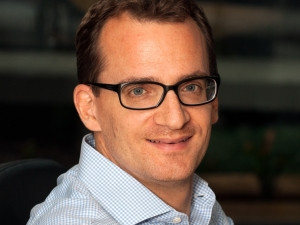
The growth of telecommunications infrastructure enables companies to expand their services to communities previously largely untouched by technology, which has the potential to transform societies.
This notion underpins the theme for this year's Southern Africa Telecommunication Networks and Applications Conference (SATNAC) in Port Elizabeth - that of ubiquitous broadband and how it has the ability to transform lives.
Speaking to this, on "the virtuous ecosystem driving societal change", Daniel Jaeger, locally-based VP of telecommunications equipment company Alcatel-Lucent, said societal change is about the ecosystem that is driving the change - not just about the network.
"We need an ecosystem where a number of elements work together: devices, operator behaviour, end-user dynamics, content and applications, and the regulatory environment."
Each of the five, says Jaeger, creates acceleration in the other. "[For example], the regulatory environment makes a huge difference in terms of what we can achieve. But there are different options for different operators and sometimes [operators] decide how they want to act outside of the regulator. All of these [elements] play a strong role in the ecosystem."
Cases in point
The said factors all play a strong role in the momentum the ecosystem is able to gain in driving societal change, notes Jaeger, "but how does this look in practice?"
He notes three real-life cases that have driven change. In health, says Jaeger, there is the M-Diabetes project in Senegal.
"The percentage of patients in Africa who do not know they have diabetes is 50% to 80%." This has been addressed by a collaborative effort between content providers, data centre hosted apps and service providers, who launched a mobile system in June to promote awareness, says Jaeger.
In the education realm, he points out that role players in Turkey recently initiated the Fatih Project, which aims to transform over 40 000 schools with the latest information technologies. "The project has already seen 730 000 tablets being distributed to schools, in its first phase. "This is, again, about creating an ecosystem that offers an end-to-end solution - including smartboards, printers, multimedia tablets, connectivity, device management and training content."
Another example of an ICT ecosystem that has brought about tangible change in society is the long-term evolution public safety initiative in North America. "The public safety solution provides a standards-based holistic communications infrastructure, along with the devices and applications necessary to deliver interoperable mobile broadband mission-critical communications."
While it is difficult to quantify the impact such collaborative ICT projects have, Jaeger says studies show they have yielded positive results, in gross domestic product, enrolment of students and the protection of lives.
Share